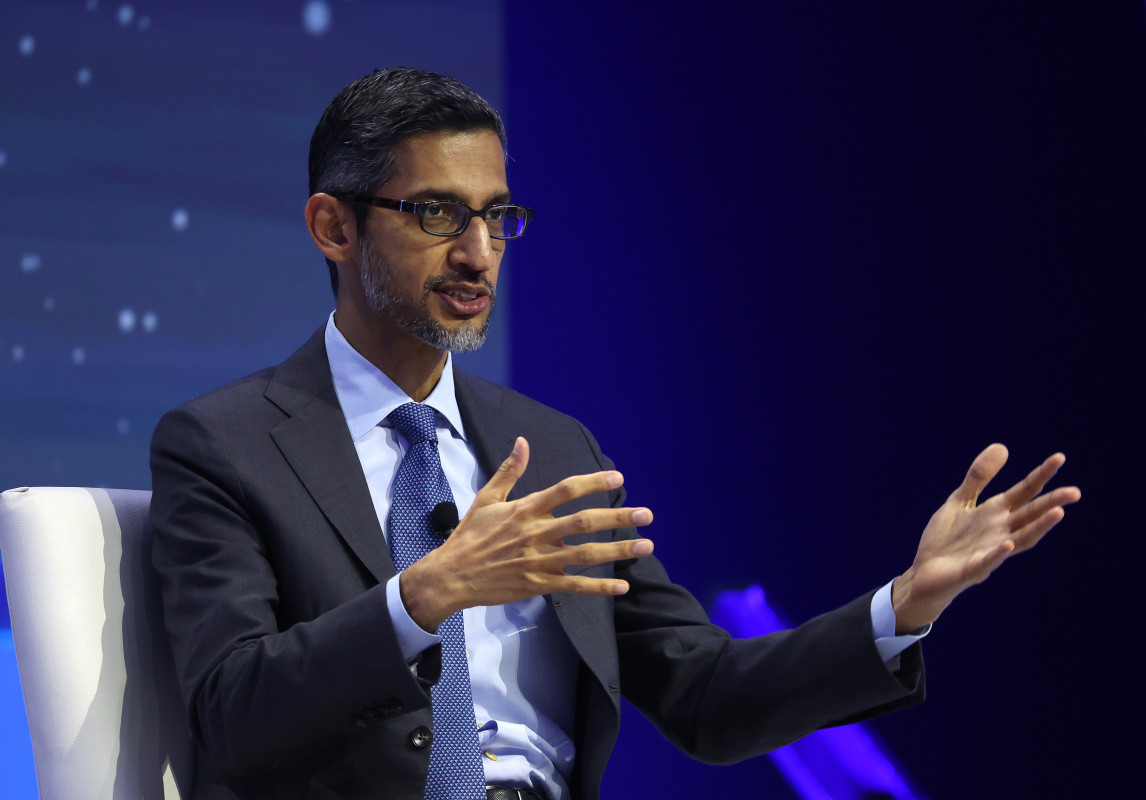
While the dictionary defines "incognito" as "having one's true identity concealed," for Google parent Alphabet (GOOG,) it was more like a four-year headache.
In 2020, Google was hit with a class-action lawsuit that charged the search, advertising, and cloud-services giant with tracking user data in the incognito browsing mode.
The lawsuit stated that the practice revealed the “most intimate and potentially embarrassing things” that people search for online, turning Google into an “unaccountable trove of information.”
To settle the lawsuit, the company agreed to purge billions of records containing personal information collected from more than 136 million people in the U.S. surfing the internet through its Chrome web browser.
While the plaintiffs sought $5 billion, Google is paying no damages, but users may sue the company individually.
“We are pleased to settle this lawsuit, which we always believed was meritless,” Jose Castaneda, Google spokesperson, said in a statement.
“We never associate data with users when they use incognito mode. We are happy to delete old technical data that was never associated with an individual and was never used for any form of personalization," he added.

Analyst cites legal woes
The incognito case and Google's other legal woes were factors in Wells Fargo's decision to trim its share-price target for Alphabet to $141 from $144 while affirming an equal-weight — effectively neutral — rating.
The investment firm's analysts noted that while the settlement didn't involve any direct financial compensation, Alphabet has incurred significant costs from other legal challenges, including a roughly $350 million settlement in February, according to Investing.com.
Related: Analysts see big strategy shift from Elon Musk after Tesla delivery debacle
Among other issues, Google is contending with a lawsuit from the U.S. Department of Justice and multiple states over its advertising business.
The government alleges the company violated antitrust regulations by monopolizing digital advertising. The trial is scheduled to begin in September. A similar lawsuit filed by Texas is slated for 2025.
The European Commission recently opened a series of new investigations under the Digital Markets Act into Google, Apple (AAPL) , and Facebook parent Meta (META) .
The commission is investigating Alphabet for potential noncompliance with steering rules and the company's measures to prevent self-preferencing.
Last month, France's competition regulator fined Google roughly $270 million for noncompliance with earlier rules calling for more transparent relationships with media companies.
Wells Fargo also cited the year-over-year effects of Alphabet's January 2023 reduction in the estimated useful life of certain equipment.
Related: Researcher has a warning about the future of the AI boom
In January Google said in its fourth-quarter earnings release that it had completed an assessment of the useful lives of its servers and network equipment. It reduced the estimated useful life of its servers to four years from six years and that of certain network equipment to five years from six.
The company said that this action resulted in a reduction in depreciation expense of $983 million and $3.9 billion and an increase in net income of $765 million and $3 billion for the three and 12 months ended Dec. 31, 2023, respectively.
In addition, Wells Fargo also said that Alphabet’s upcoming format transition to conversation search “brings significant uncertainty to the search market.”
The investment firm expects disruption with the format change, “which will likely drive headwinds to medium-term search growth.”
Alphabet CEO Pichai sees AI 'new opportunities'
In May, Google said it had started experimenting with Search Generative Experience, or SGE, the company’s move to change the search experience with generative artificial intelligence.
CEO Sundar Pichai told analysts, "SGE is creating new opportunities for us to improve commercial journeys for people by showing relevant ads alongside search results."
More Tech Stocks:
- Google fined $270 million by French regulatory authority
- Analysts revamp Nvidia price targets as Blackwell tightens AI market grip
- Analysts overhaul Micron stock price target ahead of earnings
"We’ve also found that people are finding ads either above or below the AI-powered overview helpful, as they provide useful options for people to take action and connect with businesses," he said.
He added that early feedback on SGE has been positive.
Alphabet is scheduled to report first-quarter earnings on April 23. In January, the company reported fourth-quarter earnings of $1.64 a share, beating the FactSet consensus of $1.59 per share.
Revenue totaled $86.31 billion, compared with FactSet's call for $85.3 billion.
Ad revenue, however, totaled $65.52 billion, falling short of analysts’ estimates of $65.94 billion, according to StreetAccount.
For the first quarter, analysts expect Alphabet to earn $1.51 per share on $78.7 billion in sales.
TheStreet Pro's Bob Lang said there's no question Alphabet "is playing catch up to other megacap stocks."
"The company posted some difficult-to-swallow earnings in January but with the promise that conditions would improve," he wrote. "They cited improvements in AI along with search."
Lang said the company made drastic cuts in headcount and is starting to rightsize its business.
As a result, he said, “the bloated GOOGL is becoming leaner and more attractive to big investors.”
Related: Veteran fund manager picks favorite stocks for 2024







